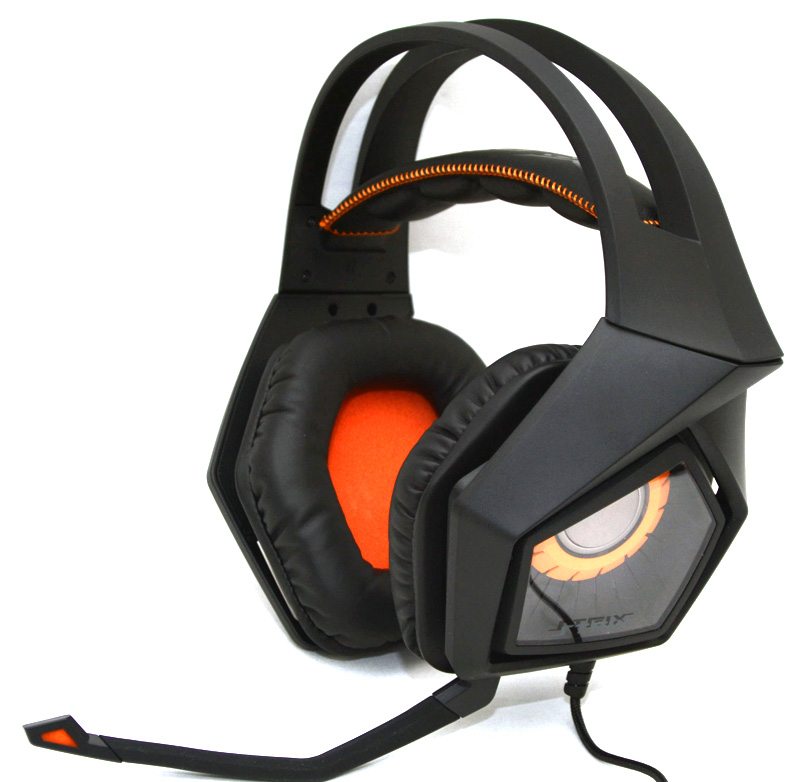Asus STRIX DSP Gaming Headset Review
Peter Donnell / 10 years ago
Introduction
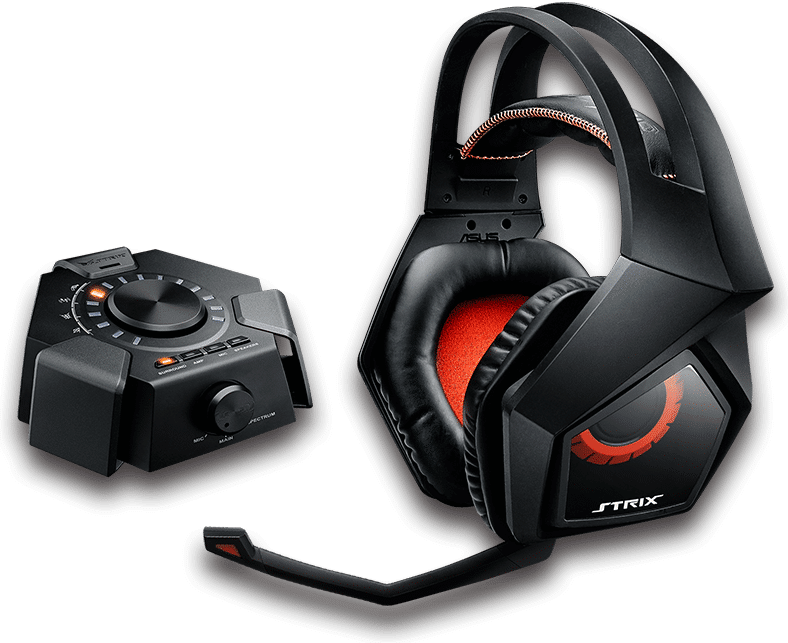
ASUS have done a lot of good for the PC gaming community, not only have they created some of the best looking and performing graphics cards and motherboards on the market, but they’ve also created a stunning range of gaming peripherals. Their new STRIX range offers a lot of products that are packed full of gaming focused features and the DSP gaming headset is as feature packed as headsets come!
Having a high-performance gaming headset can reap huge rewards to your gaming experience, while I couldn’t say that most headsets will actually make you a better gamer, the ASUS STRIX DSP has a few features that could give you the edge in your favourite game. If you’re a fan of multiplayer games that have a team element, then you’ll certainly benefit from clear audio and a high-quality microphone. If you play at LAN gaming events or anywhere noisy, you’ll also benefit from environment noise cancelling technology. If you want surround sound to hear exactly where your enemies are coming from, it can make the difference between life and death (at least in the game). If you enhance the sound of your game to make footsteps or engine noises stand out more, it can make the difference between first and last place. Fortunately for gamers, the STRIX DSP ticks all these boxes and more, so let’s get right to it and see what it can really do!
The STRIX DSP is full of features, so it comes with a few extra cables to help you get the most out of the headset. You’ll find three high quality braided cables with gold-plated connectors; a full size USB cable to hook the base unit up to your PC as well as two mobile cables to provide support for the majority of handsets from brands like HTC, Apple, Samsung, Sony etc.
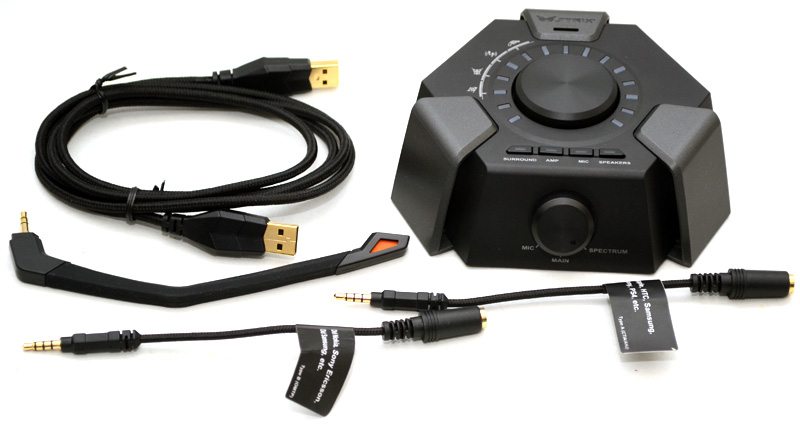
The base unit looks pretty cool and has all the major controls you could need within easy reach. There’s a large volume dial on the top with LED indicators around it, four control buttons for surround, amp, mic and speakers, as well as a three-way toggle wheel at the front of the unit.
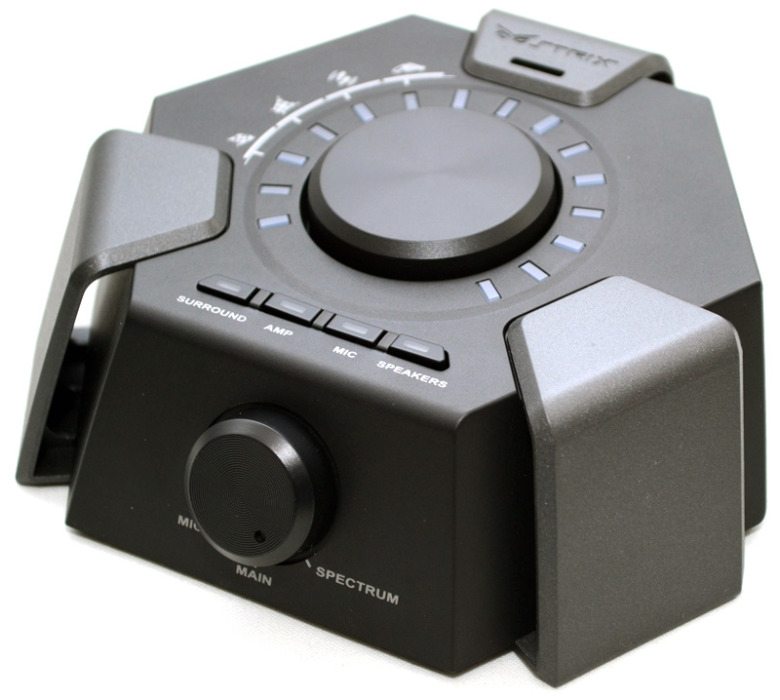
The four control buttons are fairly self-explanatory and enable or disable various features.
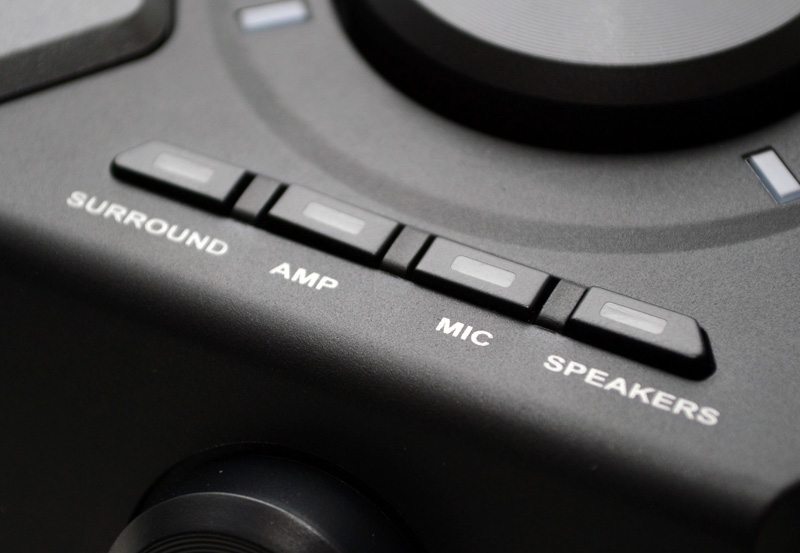
There are four AMP modes available that can enhance different aspects of your game audio.
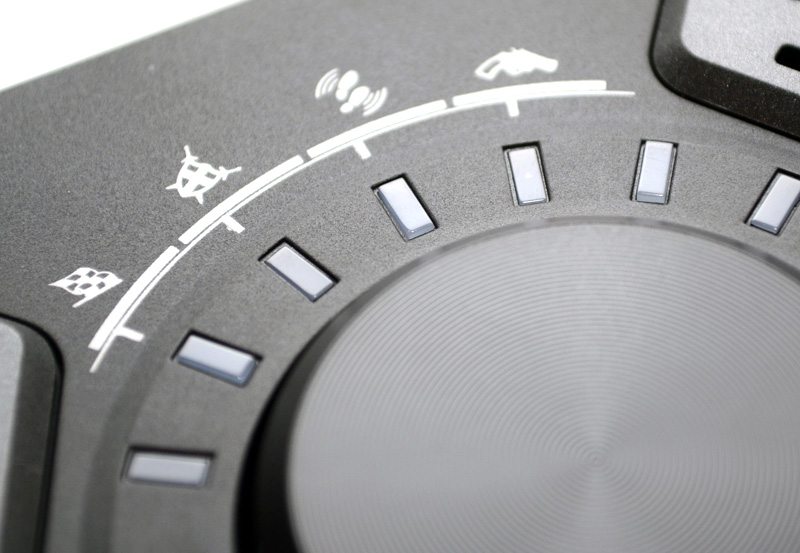
The smaller dial wheel has three options, mic, main and spectrum. Mic allows you to chance the microphone volume level from the main volume wheel, main is for master volume and spectrum is for picking the amp mode (seen above).
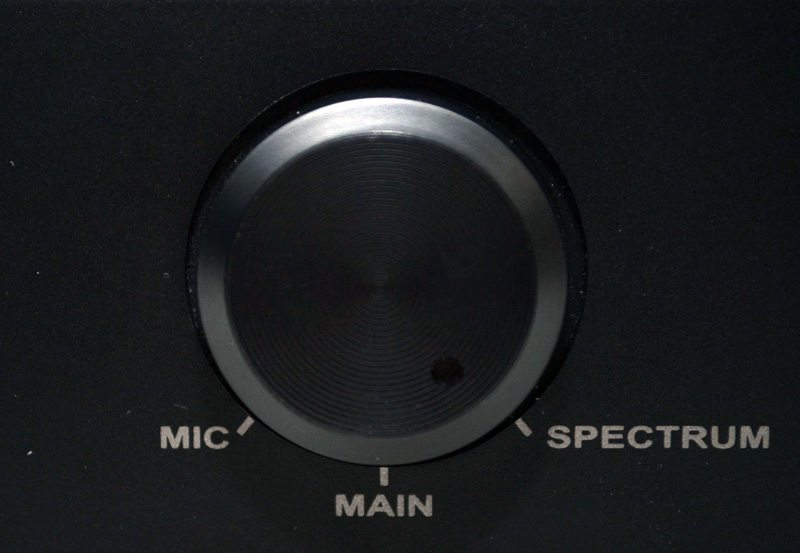
Around the back you’ll find two 3.5mm jack plugs, one to connect the headset and the other for the speaker line out. The speaker line out is a very welcome feature as you can enable or disable the headset from the base unit; no more mucking about behind your computer trying to swap cables over.
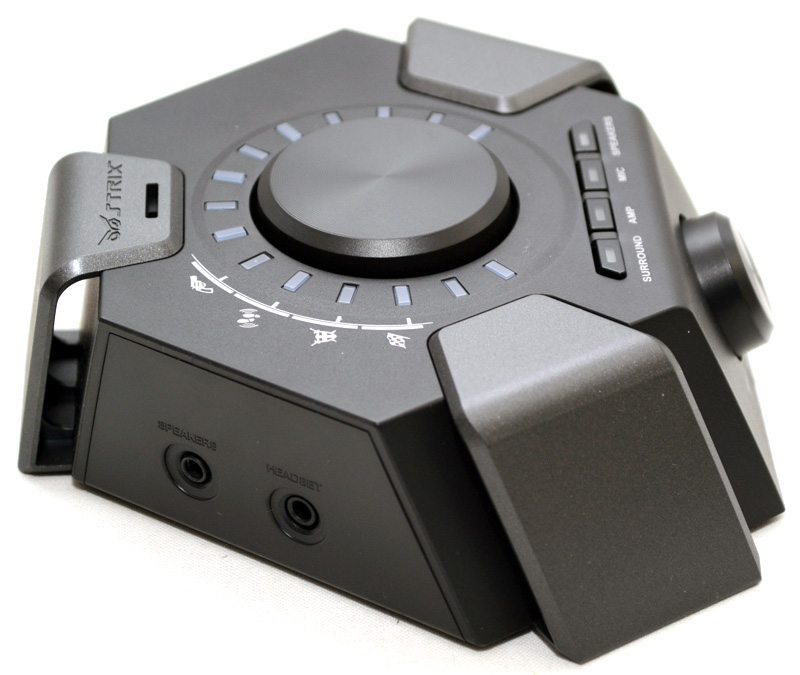
Around the other side you’ll find the USB-in.
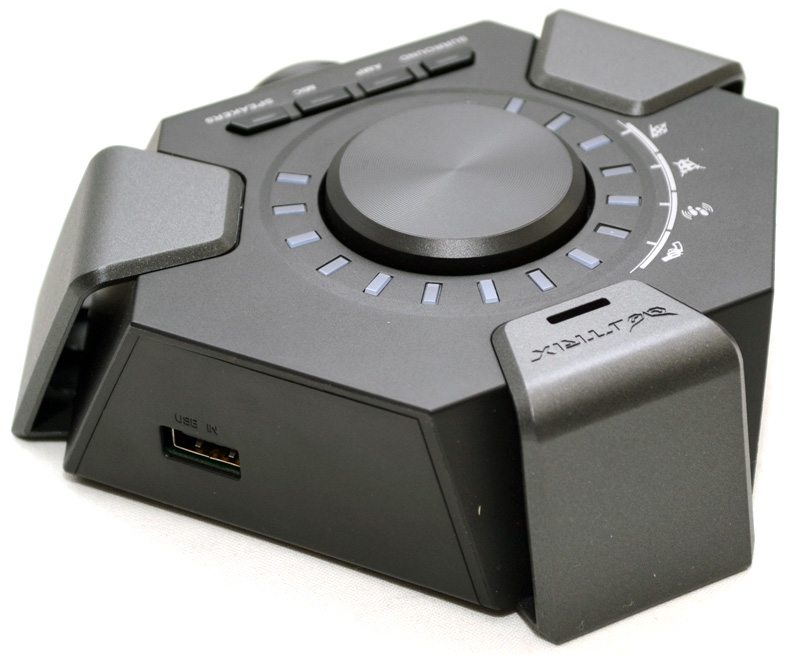
The unit is a little light, but ASUS has fitted three large rubber grips to prevent it from sliding around your desk. There are two small switches, actually they’re freaking tiny switches, tiny and recessed right into the body; they’re near impossible to switch without the use of a pointy tool of some kind. Why they’re so inaccessible is beyond me, but when you do reach them, you’ll notice they control the environment noise cancellation and the surround sound mode.
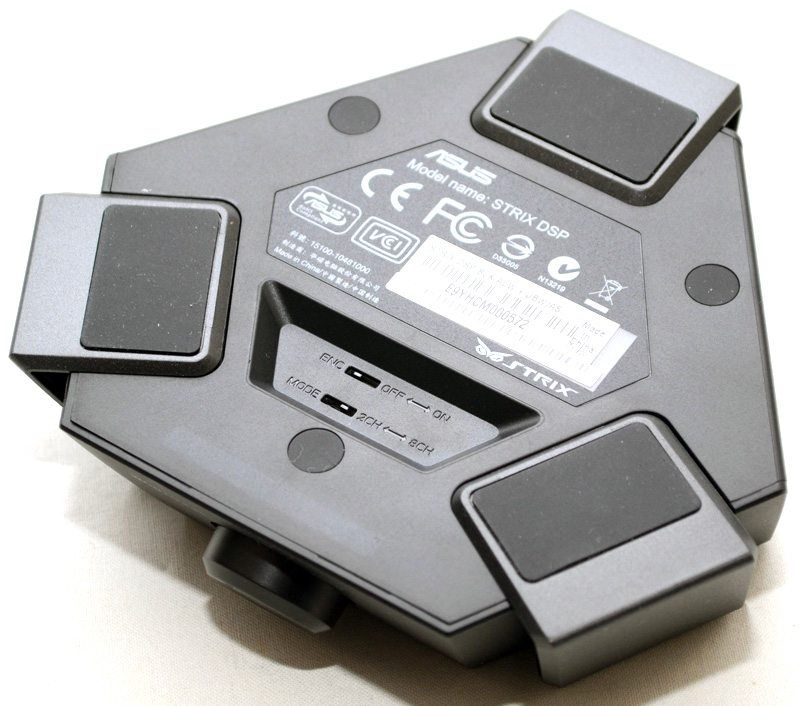
The headset has a stunning overall design, with matte black plastic for the bulk of the finish and orange highlights on the back of the drivers.
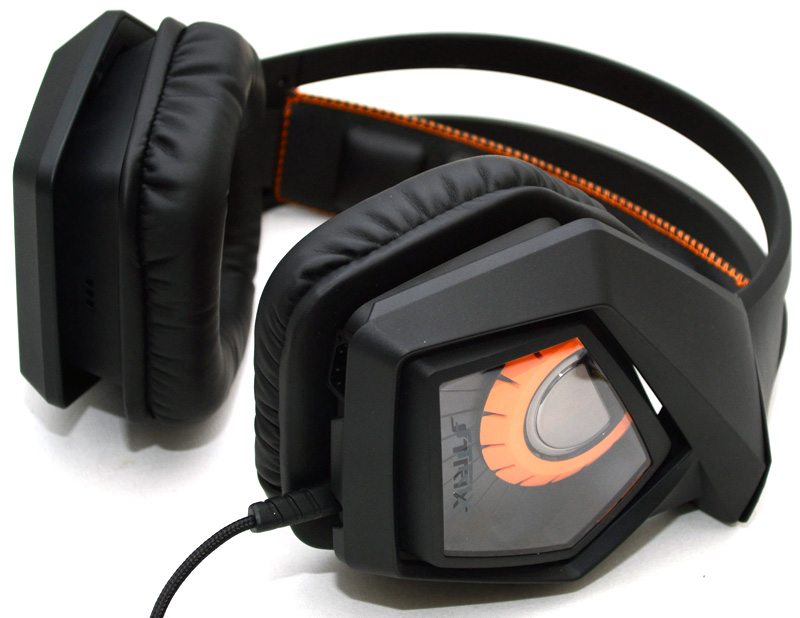
Each drive has a clear back panel that gives the DSP a unique appearance. One thing that does stand out is that the ear cups are huge! Although I guess they need to be to fit 60mm drivers.
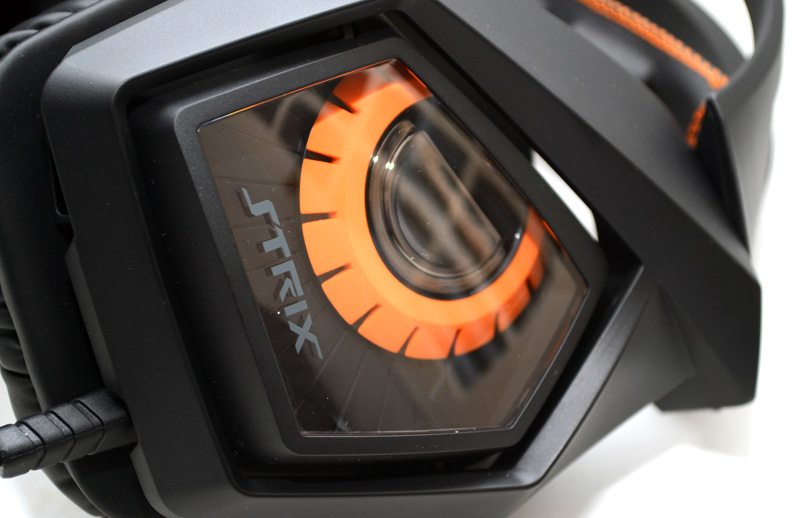
The headband is a fixed size, giving a lot of strength to the headset. There’s a secondary soft headband on the interior which is automatically adjusts to the user’s head; providing you with a comfortable fit.
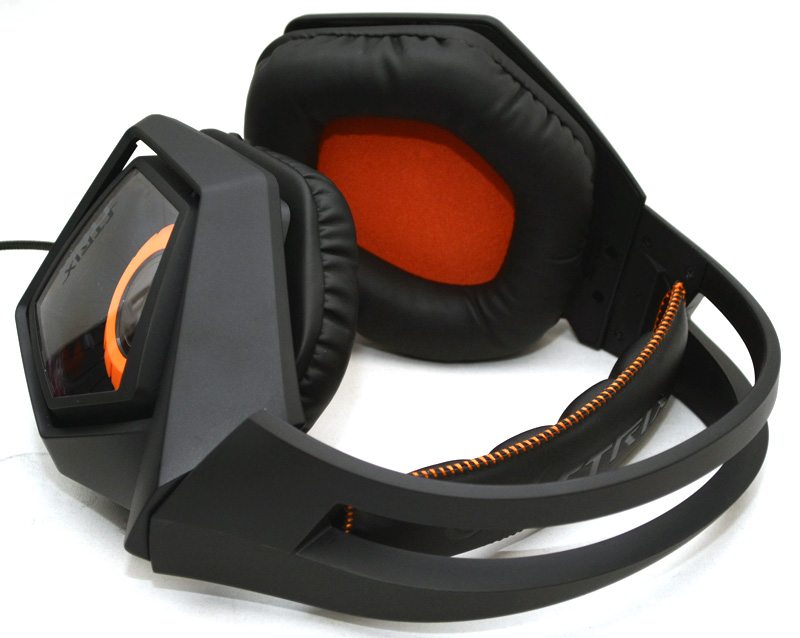
The inner headband has four sections of thick padding for added comfort.
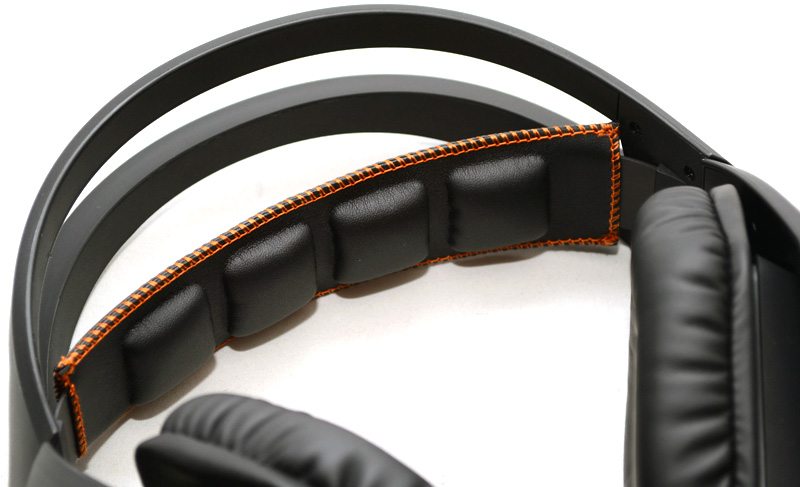
On the bottom of the drivers, you’ll find the headset is hard-wired with a braided cable and there’s a custom shaped socket for the boom microphone.
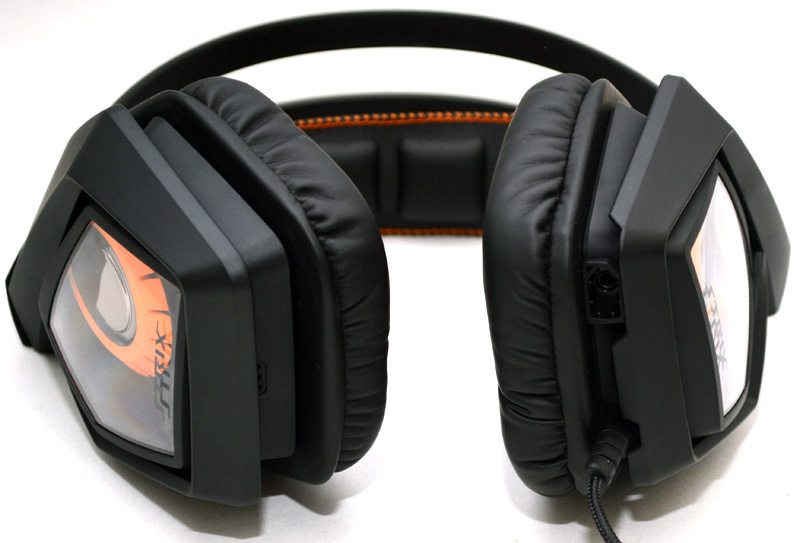
The headset has a semi-flexible boom to help you find a better speaking position; it also means the microphone is less likely to snap if knocked.
